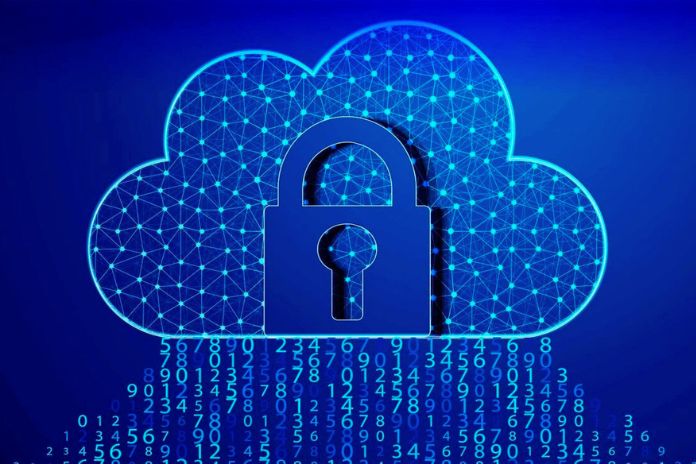Cloud Security: The cloud computing revolution has brought many benefits to businesses and ordinary citizens. The concept brought greater importance to issues such as flexibility and high availability, recurrent needs in modern times.
Another great benefit is the possibility of reducing costs and consuming on demand, other relevant issues in our current era. However, the cloud also involves a set of risks that must be faced by managers responsible for the IT sector.
This is mainly because computing in this paradigm abstracts the storage of information and files. That is, instead of being stored in a physical location, with the company’s surveillance, the files are hosted somewhere on the Internet, in Data Centers that communicate with distributed servers interconnected to the client computer.
Thus, the data suffer from network vulnerabilities such as the Internet, which can suffer attacks, interceptions, and modifications. Thus, they are susceptible to problems that directly escape the hands of managers.
That is, as much as the cloud helps in the business context, allowing IT to deal with the pressure for technological solutions and reduce infrastructure costs, facilitating control over the budget, it also provides some dangers in the same proportion.
If a problem harms a company’s files and cloud architecture, other sectors are affected, and all productivity is compromised. Furthermore, disasters associated with data loss and security issues always incur additional costs and expenses while the return decreases. For this reason, it is important to remain even more attentive to this issue so that the benefits are enjoyed and the risks minimized.
What Are The Main Risks?
Below we will see some of the main risks of this computational paradigm.
Data Breach
One of the main dangers is the possibility of breach and corruption of important data, which greatly values the company. Projects and documents can be compromised, risking the company’s entire routine. File integrity is one of the most common demands today. Organizations depend on the health of the information they deal with, so an incident that breaches them would significantly impact and trigger a series of related problems.
Because of remote access and the fact that data is not located locally on company premises, this threat is real. This is even one of the main arguments used by those who do not trust cloud systems.
Account Hijacking
Another big problem is that in the cloud, malicious hackers can break into accounts, intercept activities, deceive employees and steal valuable information. Data hijacking is quite common lately, so it should be considered something that can happen.
Undue Access
Because several organizations, often even competitors, share a cloud architecture, there is also a danger of the wrong people accessing confidential company documents.
API’s Hacked
APIs are fundamental for communication between applications and for allowing some functionalities to be implemented . However, they can also be violated, which is beyond the user’s direct responsibility.
Poorly Trained Staff
Unprepared employees can be harmful, too, as they can expose the company’s systems and information to some vulnerability that will affect the entire storage environment.
How To Take Care Of Security In The Cloud?
There are ways to take care of security to avoid these problems. They go through a concern from the IT sector and the cloud provider team to strengthen the protection layers further. Managers mustn’t leave everything to the partner companies that provide the service.
Regarding the last danger presented in the previous topic, unprepared employees, there must be efficient training and monitoring of use so that employees are fully aware of the sensitivity of the company’s data. Educating the internal team is an essential step. Security can be viewed at three levels: infrastructure, platforms, and applications.
Infrastructure
At this level, a little lower, care is taken with measures that restrict access, such as firewalls. They work like this: the client defines access rules, and whoever meets the requirements can communicate with a certain infrastructure. It’s like controlling who enters your home and who has the key. Once the owner manages it, he knows everyone who tries and enters. Thus, it is possible to block anyone suspicious as well.
Some cloud services allow the creation of a virtual private cloud (VPC), which takes care of protection at this level by isolating different organizations with different interests in accessing a given infrastructure.
Platforms
Platforms are the environments/scenarios that serve as a contextual basis for running applications and providing the necessary tools and services. It could be an operating system or a server, for example. In the case of an OS, control takes place with defense mechanisms, such as antivirus and software, that help to seal the system in the face of risks.
Applications
Applications are at the top of our abstraction, at the highest level, and closest to the end user. With them, care must be more careful in inspecting requests in the search for malicious codes that can be harmful.
An example of a tool to handle this level is the web application firewall, which monitors HTTP traffic in a web application. This filter is between the website and the rest of the Internet, trying to avoid hackers, spammers, DDoS, and other types of attacks by creating communication rules.
Managers must develop strategies to guarantee company information security, mainly because the risk to data is currently a serious problem that can generate other major losses.

